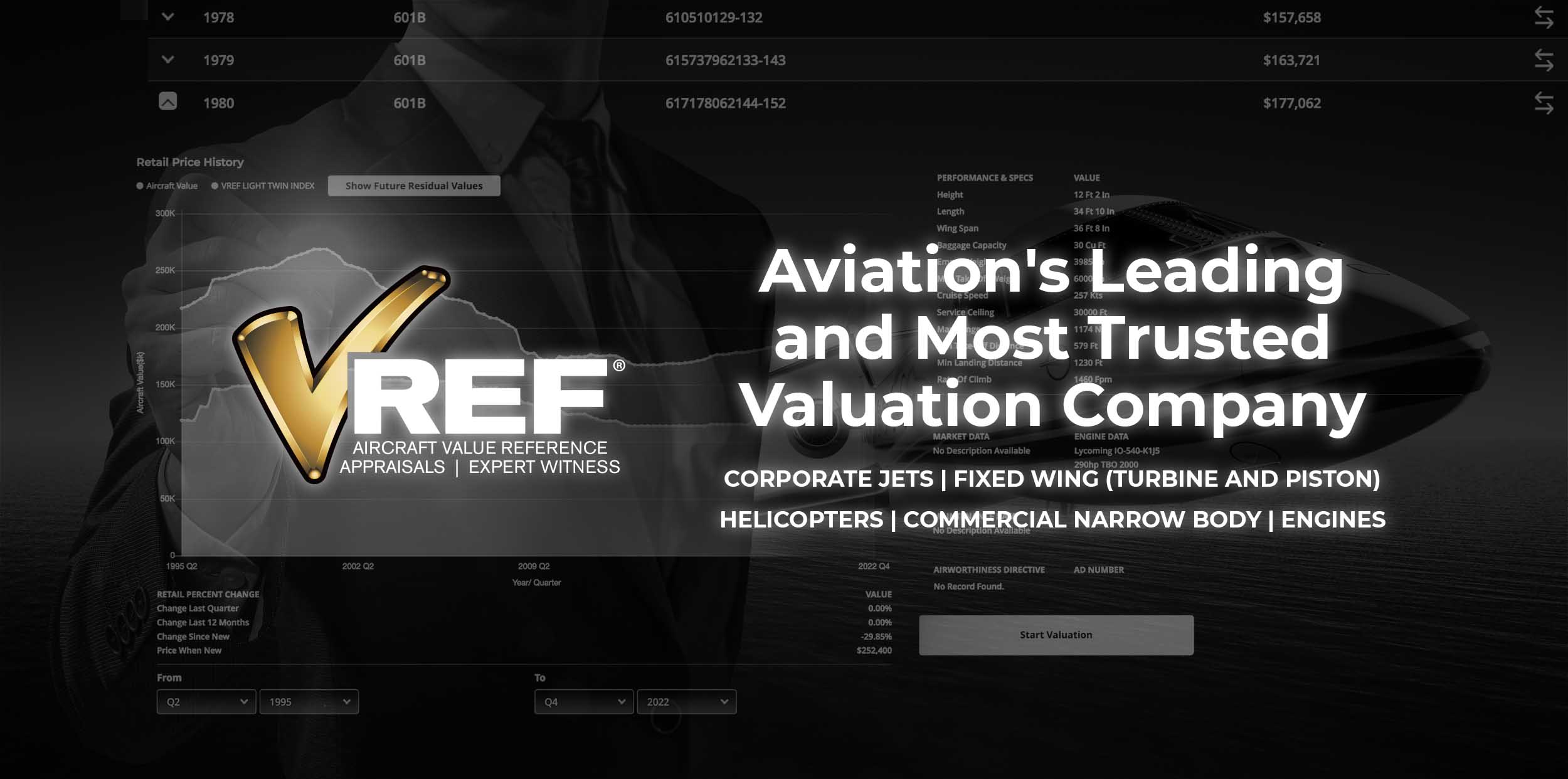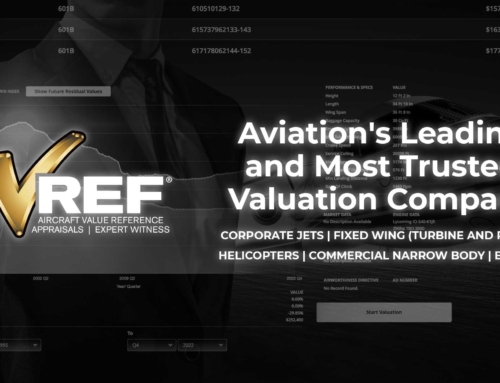Yes, some airplanes appreciate over time, but not all aircraft can guarantee your investment. Many factors dictate how much an aircraft appreciates over the years. Most aircraft will require diligent maintenance and care. However, there are other characteristics to be aware of as you gear up to sell your aircraft.
On the other end, if you’re on the hunt for an aircraft, it’s equally critical that you look out for certain red flags before making a purchase. This is because it’s your money taking the gamble when you choose to purchase an aircraft without first conducting the right amount of research. And a seller can hide plenty of issues under a decent paint job and other cosmetic improvements.
Are you searching for an aircraft appraisal? Turn to the official guide of the AOPA.
The word “airplane” is broad and includes single-engine, business, and other types of aircraft. Without getting too granular, let’s take a look at business and single-engine aircraft.
We’ve completed thousands of aviation appraisals to date. Contact VREF for your appraisal needs.
To start, business jets are a type of aircraft that depreciate at about 15% to 20% in their first year of ownership. The same can be said for purchasing an exotic car. This is because your new, fresh, innovative, and state-of-the-art aircraft comes with factory warranties and support, which often decay rapidly in the first 24 months of ownership. Buyers also want the next latest and greatest aircraft model to offer substantial improvements over its predecessor. Therefore, with each newer model, the value of previous versions typically decreases unless, of course, you are in a super hot market like the one we have today.
In the case of new high-performance single-engine aircraft (in a regular market), the depreciation can be anywhere from 6% to 15% in the first year. This range is so broad because some aircraft are simply more popular than others, which creates a backlog or line at the factory. An aircraft holds value after the first 10 to 12 years, and then it’s common for these aircraft to start appreciating. In the end, the aircraft with the longest manufacturing lifespan also tend to wind up doing their best over a long period of time.
6 Aspects That Impact How An Airplane Appreciates In Value Over Time
Overall, for both business and single-engine aircraft, there are a few main factors that affect an aircraft’s value:
- Supply vs. demand
- Improved avionics or refurbishment
- Inflation
- Cost of labor and parts
- Airframe condition
- Exterior condition
- Logbook records and maintenance pedigree
Here’s an in-depth look at each one to see how and why they impact an aircraft’s appreciation value.
1. Increased Demand
In a healthy economy, aircraft production hits a maximum, and there’s typically plenty of aircraft to go around for those interested in buying one. However, when the economy experiences a massive shift, halt, or bump in the road, the aviation industry feels it, too.
For example, the pandemic that swept the world in 2020 heavily influenced people’s willingness and ability to fly. Because nationwide shutdowns and an increasing fear of COVID-19 in the U.S. affected jobs, people had less or spent less money on travel.
Following increased travel restrictions, some chose to pursue travel options outside of commercial flights. Thus, those who had the assets decided to spend them on private aircraft to bypass many of the rules and regulations set by governments. Suddenly, and similarly to the real estate market, aircraft heavily increased demand and price. And those who could afford private plane bought them.
2. Inflation, Expensive Labor, & Parts
As demand increases with a disrupted economy, aircraft labor and parts become more expensive and limited. When manufacturers cannot produce certain parts or demand for parts is high, it has a domino effect and increases the costs of everything else. Common or popular aircraft are more likely to profit because parts and labor are more abundant.
Furthermore, as an aircraft fleet gets smaller, those aircraft become more valuable. This is especially true if the plane in question is a popular, reliable, or otherwise favored aircraft.
3. Airframe Condition
Common aircraft killers, such as corrosion, can have a massive impact on the value of an aircraft. In fact, it can affect an aircraft’s airworthiness altogether. Keeping up with maintenance can keep your plane airworthy much longer than those exposed to the elements and neglected. This is why it’s suggested that aircraft owners adhere to a strict and regular maintenance protocol. Regular maintenance and repairs become more necessary when dealing with vintage aircraft or aging aircraft.
4. Exterior Appearance
Cosmetics attract buyers in many cases. Updating certain exterior aspects can help an aircraft appreciate in value as it’s more likely to generate more buyers. As a seller, this is relatively easy to do. As a buyer, it’s essential to take caution when shopping around. You should always have a professional appraisal complete a valuation before making a purchase. This is because you’ll get an unbiased, expert opinion on an aircraft’s actual value versus whatever the owner feels its worth.
5. Updated Avionics
Alongside improved aircraft versions and alterations in the economy comes the increasingly expensive costs associated with improved avionics. Again, each newer model of aircraft aims to be the latest and greatest in some way. Today, this is measured in upgraded technology rather than major shifts in design. Avionics and engines are often the most valuable components to an aircraft, so it’s easy to spend upward of $50,000 modernizing an aircraft. Avionics are no different than consumer electronics in today’s market, and therefore depreciation is rather steep.
6. Logbooks Are Key
An aircraft without its logbooks will be worth vastly less than an aircraft of the same model that does. In aviation, maintenance and repairs are essential to an aircraft’s airworthiness. There’s simply no way to tell whether an aircraft is airworthy or was properly maintained without those records. When searching for an aircraft, always buy one with its logbooks intact. You may find financing obstacles if you try to purchase an aircraft with missing records.
Partner With The Trusted Appraisal & Valuation Experts
Are you thinking about selling your pre-owned aircraft? Demand is at an all-time high. Furthermore, you want to ensure you’re getting the most value for your aircraft. Know what your aircraft is worth with professional appraisals completed by our team of aviation experts.
When you need trustworthy aircraft appraisals, you need the professional services of VREF.



